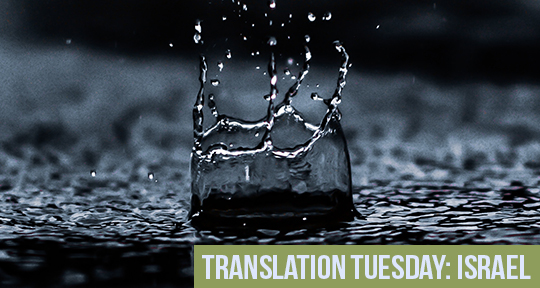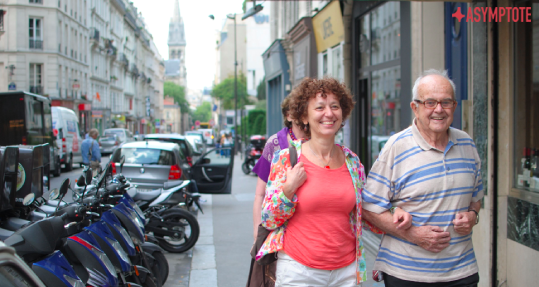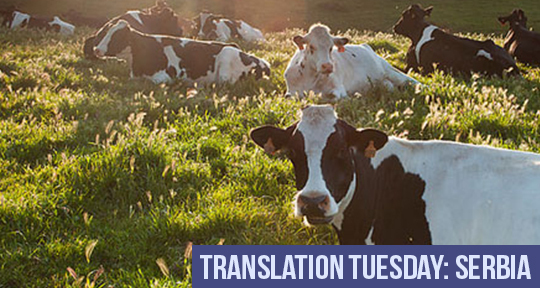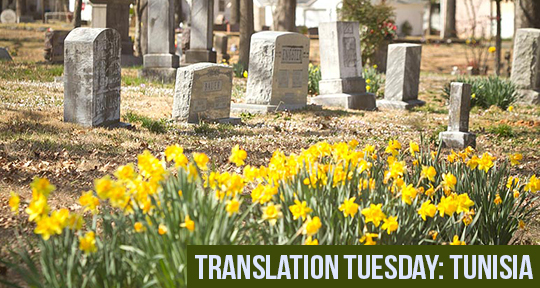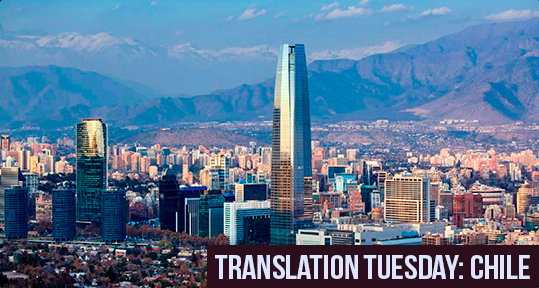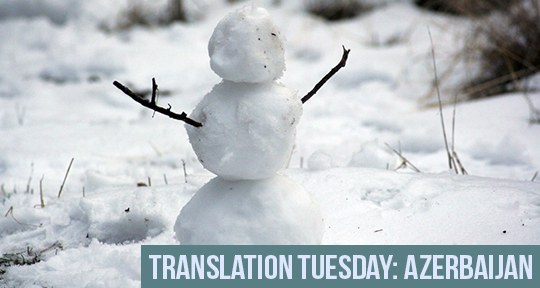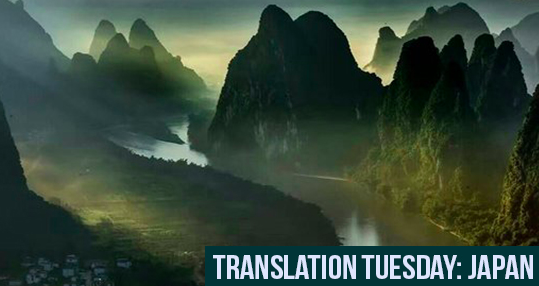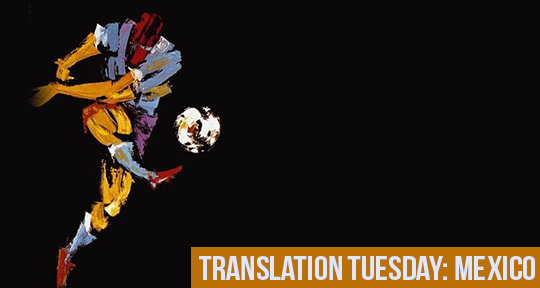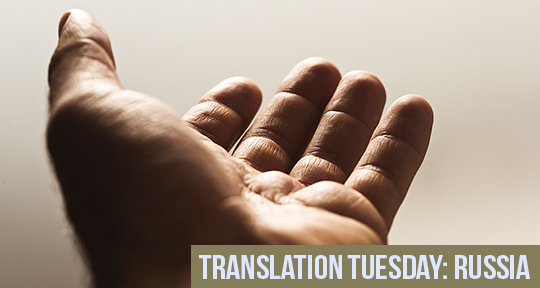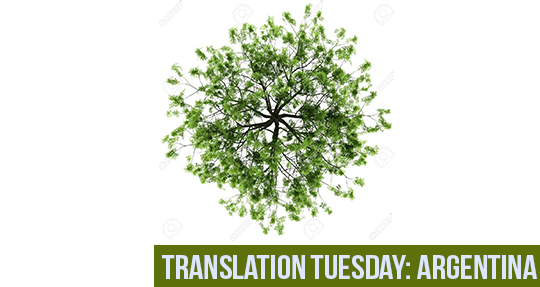In this week’s Translation Tuesday, a young woman loses her hold on reality in the aftermath of her family’s personal and political turmoil in this excerpt from Valentina Maini’s critically-acclaimed 2020 novel, The Melee. Translator Sean McDonagh introduces us to the novel’s protagonists: “Gorane and Jokin are twenty-five-year-old twins and children of ETA militants. Raised without rules, they take opposing and complementary directions: compliant and passive to everything, Jokin, a heroin-addict drummer, seems to follow in his parents’ footsteps, while Gorane, ambiguous and introverted, pulls away seeking refuge in an abstract world. When Jokin runs away and their parents become involved in a tragic event, Gorane finds herself prey to strange hallucinations of her parents.” In the following passage, we see Gorane’s dreamlike world through a powerfully-voiced omniscient narration. Childhood memories careen into present-day hallucinations as we veer further into first person—and deeper into the world of an unstable and unreliable narrator. This meandering stream of consciousness takes life through Maini’s virtuosic prose and masterful ability to warp perspective across numerous narrative threads. A lyrically stunning debut novel from an award-winning poet.
from The Melee
They say they don’t need medicine, they keep repeating that they’re healed. They look at her as if they were thirsty, but as soon as Gorane offers them a glass of water, they shake their heads and say: take us home. It’s impossible to make them stop. She signs some sort of verification form with her typically illegible handwriting. The nurse is called Robledo, she has blonde hair gathered in a bun and white latex gloves. Robledo is an open and frivolous surname that weighs a lot less than hers. It’s the surname of someone who cures. The border between Robledo and Moraza is that between Spain and her home planted in the land they call Euskadi. She moves closer to the first bed, her mother’s. As soon as Gorane comes to a halt, her mother raises herself into a seated position. The strain of that elementary motion moves her face, it seems to detach from the neck, distancing itself and fluctuating in the ether like a fish with no eyes. Gorane follows it with her gaze, she almost doesn’t speak, the fish doesn’t see but continues to swim in the air as if it knew by heart every angle of the hospital bedroom, as if its instinct was enough to give it faith, to not lose itself. This is her mother, this blind fish. Then she sees her father curled up on his side, she sees his incredibly lean and broad back and she thinks of the Oma Forest. In her poor repertoire of metaphors, her father was always a tree trunk, an oak. Gorane is a slender and dry branch that won’t break off. Gorane has spent her life fearing the foot that will break the equilibrium, split the frond; the blood of the branch that will sully the earth like an ancient tear. Her blood is now stone because of a sadistic sprite that has tested its pointless powers on her. She touches the cold shoulder of her father who wears a white t-shirt with red hand-drawn writing. The writing proclaims revolutionary words that she knows off by heart and no longer wants to hear. There’s a twisted snake that wraps itself around a badly drawn axe. They will spare her yet another political tirade, the identity that must form itself and grow through the political, which is nothing without a slogan on its backside. Eyes that shine for other people’s words in which to recognise themselves forever. To learn by heart: shout in unison, and keep the rhythm by clapping your hands. Finished sentences, in protest if possible. Without this you are nothing and you can never articulate the revival of your people towards liberty. But this time, her parents don’t attack with the usual slogans because they are tired, because the exertions don’t help to obstruct the path to a swollen body. It’s a kind of struggle that they don’t know, the one against the body that rots. She goes into the bathroom and washes her hands. The first time for Mum who, blind, slams against the furniture of the hospital bedroom, smiling still, saying everything is fine. A second splash for the back of Dad, his wooden head hidden within his jet black hair. The water will wash away all of the sins, if the job is done meticulously, if Gorane will commit herself to scrub at length, to not leave anything to chance and to the stupid belief that a handful of prayers will be enough to receive pardon. She returns to the room where her parents watch each other, smiling, continuing to talk quietly, or to sing. Gorane would like to tell them that the only reasonable option is rest, to close their eyes and await what passes, what heals, but she says it in silence, to herself, before her mother and her father disappear, engulfed by the first, then by the second swollen eyelid.
They walk side by side along the hospital corridor, Gorane keeps her right hand in her father’s left, her left hand in her mother’s right. The beaten bodies are theirs, but it is Gorane who staggers. Strength is applied to the legs, she squeezes her parent’s fingers, which barely reciprocate. The patrons, the relatives of the sick, the patients, watch only her at the centre of that human line that proceeds like an army in an on-the-ground conflict.
“We’ll need to take public transport, you shouldn’t put yourselves under too much strain.”
Gorane pronounces the words in slow motion, expanding each syllable, she makes every consonant snap as if to stamp it in the air, indelible. She continues to look in front of her, the panorama changes, the people enlarge, her body is as weak as theirs.
“We want to walk” they say in unison. “We need to walk.” READ MORE…

